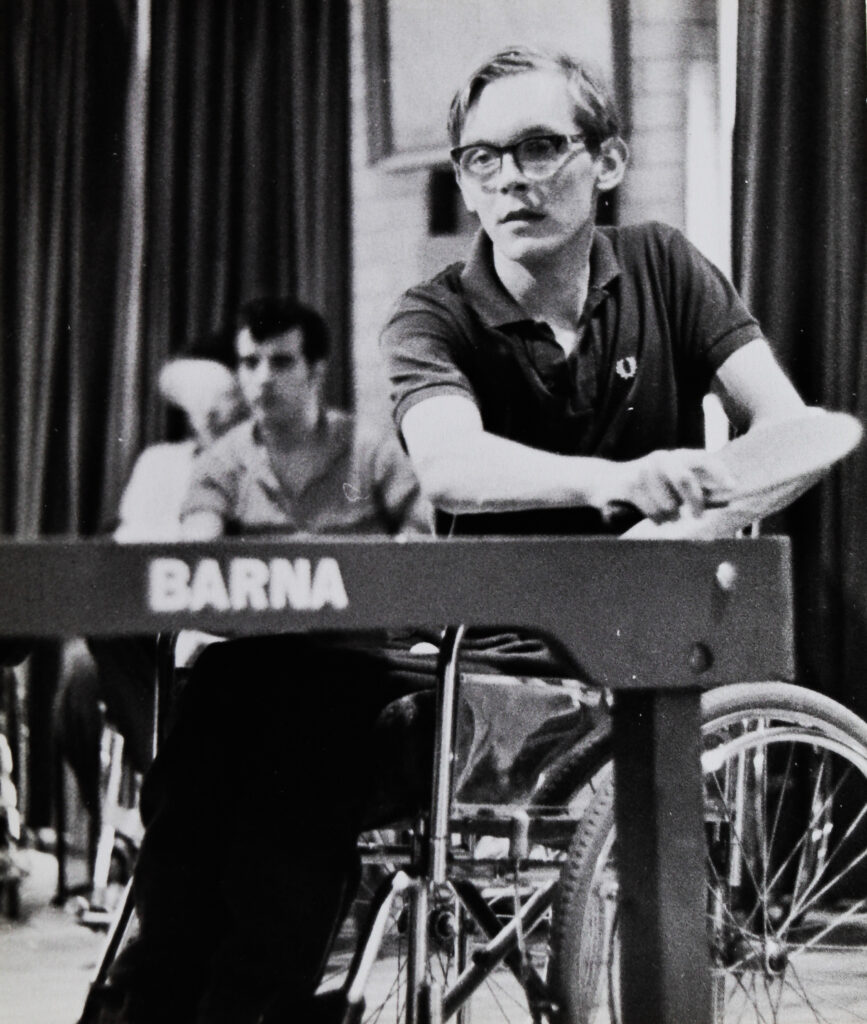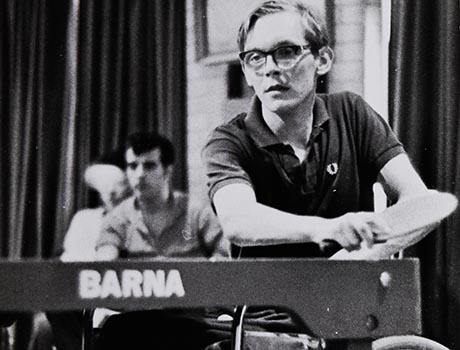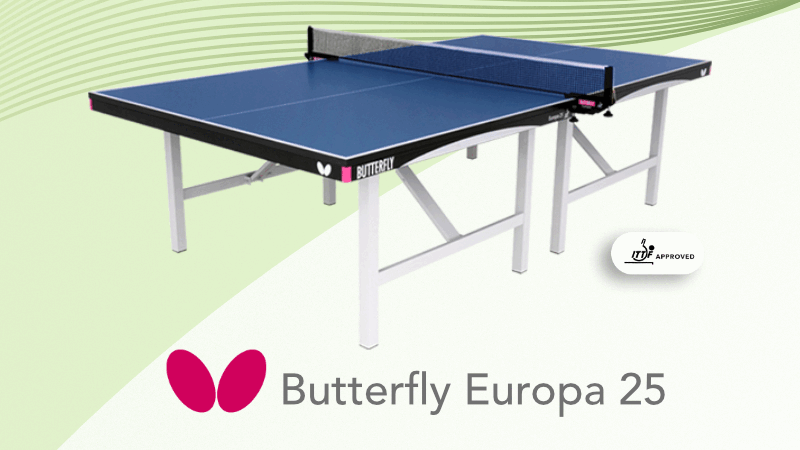Philip Lewis MBE, a true pioneer of para table tennis and a tireless campaigner for the sport, is the subject of the latest in our series of Centenary Stories.
Now President of British Para Table Tennis, he was the first wheelchair player to play in an able-bodied league and went on to be a Paralympic silver medallist.
His story is all the more remarkable as, having suffered a broken neck when a passenger in a car crash in Oxford in 1962, his parents were told he would probably die in the next 24 hours but if he survived that he would spend the rest of his life in hospital or a nursing home.
Philip says that his parents on the way home discussed the position and felt it would be best for him if he died within the 24 hours (as years went by Philip had lots of jokes with his parents about writing him off!)
Despite this by 1964 he was playing in the Paralympics, the result of pioneering treatment at The National Spinal Injuries Centre at Stoke Mandeville, Buckinghamshire under the care of Dr Ludwig Guttmann, known as the father of the Paralympic movement who by the time he died in 1980 had become Professor Sir Ludwig Guttmann CBE FRS FRCP FRCS
In March 1965, Philip was featured on the cover of Table Tennis News and an article inside detailed his success playing for the hospital team in the Aylesbury League, as well as the achievements of the GB team at the Tokyo 1964 Paralympics.

Philip said: “I was the first wheelchair player to play in an able-bodied league. What had happened was that in Stoke Mandeville I had a physio named Bill Preston who was himself very keen on table tennis. He formed a Stoke Mandeville Hospital Staff Team in the Aylesbury League.
“His team comprised himself, Mike Waterland, and one other person. In January 1964 the third person in his team was unavailable for a match and so Bill phoned me at home and tried to persuade me to be the third person. My first reaction was ‘I am not going to be made a fool of’, but he kept talking, and with my mother encouraging me to go, I agreed.
“I think Bill had spoken to the opposition as the first man I played was playing ping pong with me and it made me even more determined to show him I played table tennis! Although he beat me and so did the other two men in their team but they all realised they needed to play table tennis or otherwise they might lose! I had enjoyed it and was pleased when Bill asked me again the following week and then I played for the rest of the season.
Subsequently, Bill left to be a physio in Peterborough and Trevor Newton, the husband of Mary Newton, a physio at the hospital, took his place. After a year or two Mike Waterland left the area and George Monaghan, another wheelchair player, came in. With Trevor as number one, George number two, and myself number three, we were delighted when we surprised everyone by winning Division 3 of the Aylesbury League after a couple more seasons! Now, of course, lots of wheelchair players take part in Leagues playing against able-bodied players.”
Philip won Doubles Gold Medal at the 1966 Commonwealth Games in Jamaica with Paul Lyall and Bronze in the Singles, a Doubles Silver medal at the 1972 Paralympics alongside Derek Williams, Doubles Gold Medal at the 1974 Commonwealth Games in New Zealand alongside Dave Ellis and Silver in the Singles.
Subsequently Philip was awarded the MBE for services to sport in 1981. He was not the only member of his family to have a pedigree in the sport. His father Harry Lewis, who was born in 1895, enjoyed all sports at the St Bees boarding school in Cumbria in the early years of the 20th century and, after serving in the First World War with the 8th Battalion Royal West Kent Regiment, he played in the 1923 ETTA National Championships reaching the quarter-finals held at Harrods as were the semi-finals and final as it was the only suitable venue that hadn’t been bombed.
He got a job with Huntley & Palmers and with his family lived in Orpington, Kent. During the Second World War he ran the London office in Fenchurch Street and also served with the Home Guard in Kent as a Colonel.
Philip, who was the youngest of four children and born in 1938, said: “In 1945 after the war we moved to Pangbourne because the Huntley & Palmers head office and factory were in Reading. My father had a table tennis table put in the room above the garage and during the winter months when returning from the office, my mother with my sister and myself, would meet him at the station at 6.45pm and drive him home. I would then play table tennis with him for an hour before he had his dinner. This was my introduction to table tennis and has led to my enjoying it ever since.
“In my boarding school, Malvern College, in the basement of the house there was a room with a table tennis table, and I used to often play with Johnny Hill and Derek Fillingham. Thus, once paralysed, I was keen to find out if I was still able to play table tennis.”
Many decades later, Philip is still a devoted follower and promoter of sport for all disabled people, particularly table tennis.





